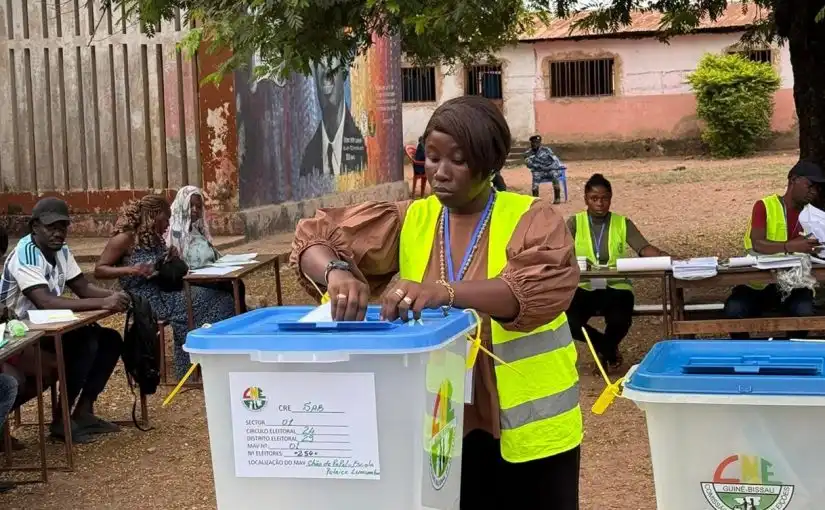Election officials have started counting votes in Guinea-Bissau. This follows Sunday’s crucial presidential and legislative elections. The West African nation is now waiting to see if President Umaro Sissoco Embaló secures a second term.
This election is a major test for the country. It comes at a time of political uncertainty.
A Tight Race
The contest is expected to be very close. President Embaló faces a strong challenge from Fernando Dias da Costa. Dias is a 47-year-old candidate backed by the main opposition alliance.
To win immediately, a candidate needs more than 50 percent of the vote. If no one reaches this number, the top two candidates will face a runoff election.
Leaders Cast Their Votes
President Embaló cast his vote in the city of Gabu. He is a former army general who first took power in 2021. After voting, he urged citizens to remain calm.
“I hope that the electoral process will take place calmly and peacefully,” Embaló stated.
However, the opposition expressed concern. Challenger Fernando Dias da Costa warned against voter suppression. He accused the current government of using authoritarian tactics. Dias called for national unity and an end to political instability.
A History of Instability
The stakes are high for Guinea-Bissau’s 2.2 million citizens. The country has a long history of political unrest. Since gaining independence over 50 years ago, it has endured multiple coups and attempted takeovers.
Furthermore, the political system has been paralyzed recently. The opposition-dominated parliament has not met since December 2023. President Embaló dissolved it after a reported coup attempt.
Hoping for Change
Voters in the capital, Bissau, expressed cautious optimism. Many hope the election will bring stability to one of the world’s poorest nations.
Residents emphasized the need for peace and food security. They want a government that can solve economic problems rather than just fight political battles.
Hurricane Melissa: 477,000 Students in Caribbean Face School Closures























